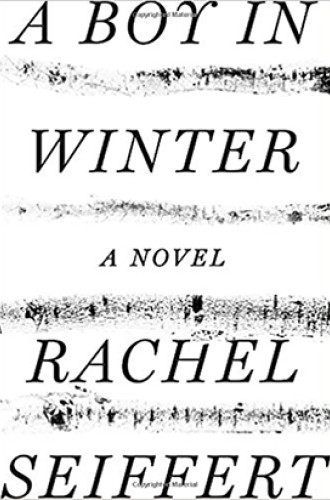Ukraine, 1941
In Rachel Seiffert's novel, the characters' fears unite them as they watch and wait.
There are moments that demand a decision. Caught up in a swirl of circumstances not necessarily of our own making, we weigh our own best interest and that of those we hold dear. Relying on intellect or instinct, we choose, hang on tight, and hold our breath, waiting to see what happens. Rachel Seiffert draws us into just such moments in her slim but significant novel.
It’s November of 1941, somewhere in Ukraine. A young boy winds his way through the streets, his younger brother in tow. They are dodging the German and Soviet troops which have overwhelmed the village. Yet, as they run away, they are also reaching toward a freedom they scarcely know exists. The dangerous allure of adventure, the stuff of the stories their mother has shared about their uncle, seduces them even as it seeks to set them free.
Read our latest issue or browse back issues.
On another street, in another part of town, the Jewish community is filed into an empty factory, a makeshift holding cell of sorts. It is hard to say how many there are. “There are a hundred in there. More. Perhaps it is nearer two or even three: it is a press of people.” Within this press of bodies, there is a sense of suffocation, each breath more labored than the last. Every exhale silently prays to find one another, families and friends torn asunder. Every inhale is a sharp stab of unanswered prayer.
A sense of timelessness carries along the narrative as we follow the plight of the Jews. They are not permitted to rest, so they stand, wearily and warily leaning against one another. The doors open; more are ushered in. The trucks gather and idle, waiting. As they wait, we wait, uncertain of how many days, hours, and minutes have slipped, one into another. It is destabilizing. We must look to clues within the novel’s other points of view that suggest a more measured passage of time.
For instance, German engineer Otto Pohl awakens to the commotion of a convoy of SS and Wehrmacht vehicles. He watches from the window as soldiers unceremoniously force Jewish families from their homes, manhandling men, women, children, young and old, herding them as though they were nothing more than livestock. Pohl campaigned for a construction assignment, unable to conceive taking up arms for a country whose government he no longer trusted. He was tasked with building a road, no doubt to be used by the SS. Pohl consoles himself with the hope that the road will eventually benefit the Ukrainian people, once the fighting is finished.
Yasia also lives in hope, awaiting the end of the war. She is a young woman whose intended, Mykola, has been fighting for the Red Army. Soon, Mykola returns home, having deserted his duties. War has changed him, and he swears he will not return to the battle. Yet, mindful of financial necessity, he avails himself, however hesitantly, to the German troops. Yasia reasons and wonders, “the Germans haven’t only come giving orders, they have come to take as well. They take whatever they want, whoever they have use of. Who have they come for?”
Fear is a common thread knitting together the stories of these characters: fear of the unknown and the obvious; fear for one’s self, one’s loved ones, and those one scarcely knows. Fear tends to cloud judgment, either paralyzing any action of good will or suggesting that caution be cast to the wind. Mykola acknowledges fear as the contagion it is, recognizing quite eloquently that “another man’s fear was nothing to trust in.” Each seems to feed on the other’s fear, working themselves into a frenzy. In such a horrific environment, innocence is an illusion, a garment easily shrugged off.
Pohl wrestles with his conscience as he considers his culpability in the atrocity all around. When he asks for more workers, they are offered—a factory full of folks, his for the taking. He is sickened by the desperation, by the cruelty and the shameful shadow of forcing the Jews into service by his hand. His response, although at the time he doesn’t know it, will be a matter of life and death for many. Similarly, when Yasia happens upon the two wandering boys, the repercussions of her actions will shape the futures of all three of them.
The narrative rhythm of the prose matches the progress of the plot. We experience this initially as the timelessness in the factory unfolds. From that point on, when there is confusion and commotion, words collide—nouns, verbs, and adjectives all clamor for attention. When the air is still and conditions calm, the prose relaxes a bit. Each pause seems more pronounced, and speech more deliberate. The cadence of words on the page echoes the plodding of Yasia’s horse as Seiffert describes its labors through the snow, hooves wrapped to soften the sound.
The story’s ending carries theological implications that trouble the waters of freedom, faith, agency, and salvation. Seiffert’s narrative draws readers to ask, what would we do, confronted with such impossible circumstances and difficult decisions? Would fear control the reins? Can lost innocence be found? How much is too much to lose? These questions may be best left unanswered. Still, they’re worth asking.







